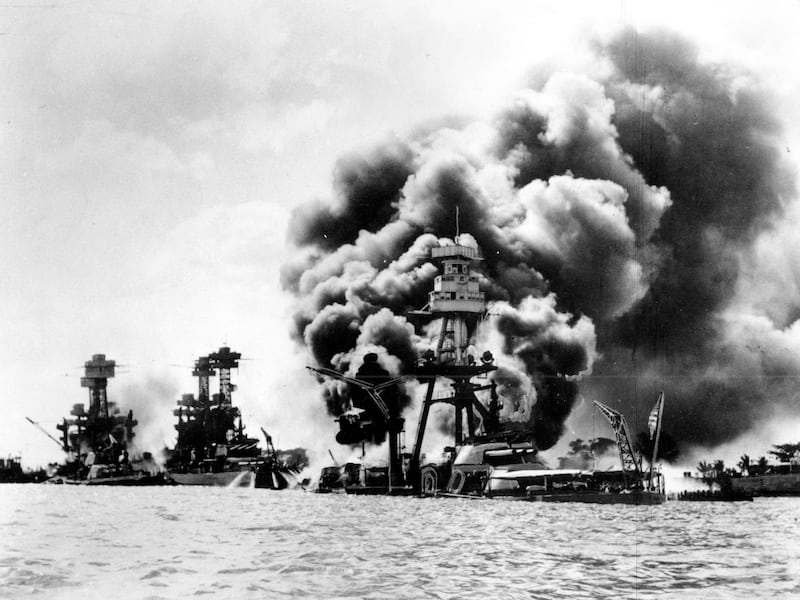Russell Baker, the Pulitzer Prize-winning journalist who died earlier this year, once described the way he viewed the United States before Dec. 7, 1941.
“Dimly, I had been aware through all those years that worlds were burning, but they seemed far away,” he is quoted as saying in a book by William K. Klingaman, called “The Darkest Year.”
“It wasn’t my world that was on fire, nor was it ever likely to be, or so I thought. Sheltered by two great oceans, America seemed impregnable. I was like a person on a summer night seeing heat lightning far out on the horizon and murmuring, ‘Must be a bad storm way over there someplace.’ It was not my storm.”
Indeed, war was out there, far away. It played on American culture in an almost lighthearted way. A newspaper ad on the morning of Dec. 7 offered a mechanical pencil as a Christmas gift. “Press the magic button … with your thumb — and click! It feeds new points like a machine gun!”
All of that changed when Japanese bombers broke the lazy calm of that Sunday morning with an attack on Pearl Harbor. Machine guns became deadly serious; not a laughing matter.
The original draft of the speech President Franklin Delano Roosevelt gave to a joint session of Congress the next morning called the previous day “a date which will live in world history.” Before delivering it, he scratched out the last two words and wrote “infamy” above them.
That single change recast the speech, commonly known as the “infamy” speech, as one of the great addresses of the 20th century. The word accurately described the day and its effect on the nation.
Life in the United States never would be the same. About 420,000 Americans, mostly soldiers, would die in the conflict that ensued. But even that great number pales in comparison to the estimated 75 million deaths worldwide, including military members and civilians.
The war took the world to the evil depths of concentration camps, genocide, murderous labor camps and other atrocities. Mankind’s potential for inhumanity seemed boundless. And while the forces of liberty ultimately prevailed, victory came after the creation of a bomb so powerful and destructive that it almost immediately led to a so-called cold war that lasted another 45 years and redefined international relations in ways that still reverberate. The world so far has been kept from another such conflict by the apt acronym MAD, for the mutually assured destruction the bomb would unleash on all nations involved.
To remain strong, to defeat the ever-present enemies of freedom, Americans still must unite in purpose the way they did on this infamous date in 1941.
Today marks the 78th anniversary of that infamous day that changed everything for good. Those who experienced it, who heard about it on the radio or through word of mouth, and those who fought in the conflict that followed, are quickly dwindling.
We honor them because they had what it took to unite the nation behind a cause and to defeat an existential threat that, after the nation’s Navy was decimated at Pearl Harbor, seemed almost insurmountable.
That generation did not end all conflicts, nor did they harbor the illusion of doing so, as had an earlier generation in World War I. Today, the heat lightning Russell Baker described keeps pulsating. It no longer seems so far away, and it takes on many forms.
But that generation did show us the way. To remain strong, to defeat the ever-present enemies of freedom, Americans still must unite in purpose the way they did on this infamous date in 1941.

